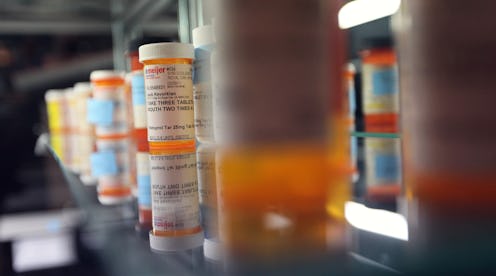News
This Could Cure Hepatitis C — At A Price
The Food and Drug Administration has approved a drug to treat hepatitis C more effectively — but it comes with a very steep price tag. The drug, called Sovaldi, can be taken orally and used against certain infections associated with hepatitis, and eliminates the need to treat hep C with interferon, an injected drug that can bring about flu-like or anemic side effects. But — and this is a big but — the drug costs an estimated $1,000 per day (!), with treatment running for 12 weeks. According to the drug's manufacturer, Gilead, that'll cost patients about $84,000 in total. Despite the pricey tab, some experts say Sovaldi could become one of the top-selling drugs in the world, even beating out the annual $13 billion earned by Pfizer's Lipitor. Some predict Sovaldi sales could reach nearly $2 billion by next year.
Current treatment for hepatitis C lasts for nearly a year, and involves the invasive interferon treatment. Hepatitis C is often undiagnosed and its complications with other illnesses kill more than 15,000 Americans per year. Between half and three-quarters of patients are ultimately cured by treatment, and most of the roughly 4 million Americans with the disease are part of the "baby boomer" generation. "The disease is the nation’s leading cause of liver cancer and liver transplantation, and in recent years has surpassed HIV/AIDS as a cause of death," according to a statement by Gilead.
Gilead states that it has launched a program to assist prospective patients who cannot fork over the $7,000 per week to pay for Sovaldi. The company will provide case officers to find appropriate coverage options in the federal healthcare exchanges, or guide people toward Medicare and Medicaid. According to Gilead, people who qualify for its Sovaldi Co-pay Coupon Program will pay no more than $5 per copay — and in some cases, the drug will be available free of charge.
Gilead will certainly be rolling in money from the drug, that's for sure. But if the drug is patented in India — which some groups are hoping to block — it could be manufactured as generic copies and available to people in the developing world for a lot less money.
Good news: Other drug companies, including AbbVie, Bristol-Myers Squibb, Merck, and Johnson & Johnson, are also developing similar oral treatments for hepatitis C that could be available within the next three years.
